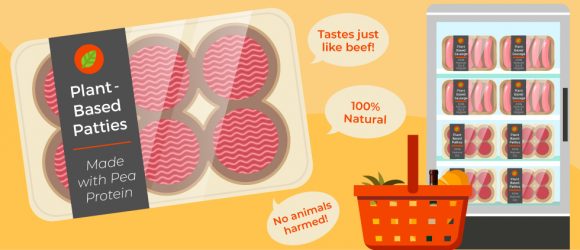Do You Know What Matters to Millennial Decision Makers?

Connecting with Young B2B Buyers in the Food Ingredient Industry
We’ve discussed how millennial consumers are changing the conversation in the food ingredient industry, but consumers are only half the story. The other half of the story? Buyers. The oldest millennials have worked their way up the corporate ranks and stepped into decision-making roles. These newly-minted executives are bringing their personal values to work with them and they’re not interested in business-to-business-as-usual.
With over 72% of B2B buying decisions involving millennials at some stage of the process, there’s no denying that this generation is going to have a tremendous impact on how you do business in the future. You might need to retool existing tactics to effectively sell food ingredients to millennial buyers, but the good news is, if you do it right, there’s a tremendous opportunity to differentiate your business, forge stronger connections with your customers, and benefit from their penchant for referral marketing.
6 pointers to help you connect with millennial ingredient buyers:
1 – Start with respect
Look for common ground with young B2B buyers. Nobody wants to be seen as a stereotype and treated in a one-size-fits-all manner. Every generation has challenged norms and ushered in new ways of thinking and behaving. As a Boomer or Gen Xer, you may need to reconnect with your 40-year-old-self and realize that many of the concerns you had at that age are similar to those of millennial decision-makers.
2 – Update your idea of a sales funnel
Millennials are information-hungry research experts. If they’ve been tasked with making buying decisions for their business, they’re going to start by scouring the internet for information and soliciting recommendations from their networks. Statistics reveal that they’re not reaching out to vendors until they’re 70% of the way toward finalizing a decision. They don’t want to talk to salespeople until they’ve decided who’s got the goods and can be trusted to deliver them. The result is that sales departments have been pushed out of the discovery phase.
3 – Pave the way with great content
Where sales reps have been pushed out of the discovery process, content is a cost-effective way to attract potential customers. Give millennials high-quality content on a variety of platforms and in a mobile-friendly format to pull them into a conversation with your sales team.
Great content helps your potential customers solve their problems or anticipate changes in the industry. Address ingredient buyers’ concerns about how to make product reformulations minimally disruptive, or provide thought-leadership about the newest food trends or production practices. Don’t forget to take the opportunity to humanize your brand through story-telling and allow your customers a window into your process and company ethos.
If you would have previously leaned on a white paper to present the facts about your products, repurpose that same content into a series of videos, blog posts, podcasts, or social media content. Millennials are just as likely to start an internet search on YouTube as they are to begin with Google. When developing content, focus less on product specifics and more on the value that your product can bring to a business—and their customers—then back your claims with data.
4 – Level-up your online customer experience
Millennials have brought their online B2C expectations into the workplace with them and they expect the same features from your website as they would from a retail site. Benchmark your digital B2B experience against the best B2C digital experiences, and provide loyalty programs, personalization, reviews, and data-rich content that will pull them in to learn more about your products.
Don’t think you need social media? Think again! Over half of B2B buyers are using social media to research vendors and 80% say that social media affects their buying decisions. Twitter chats, Facebook Live videos and short webinars are valuable ways to create connections and engage in real-time conversations with potential buyers so you can better understand their wants and needs.
5 – Adjust your communication style
Most millennials prefer to communicate via email or text. Adapt your outreach communications to meet their preferences and steer away from phone calls and voicemail. During your initial conversations with millennial food ingredient buyers, assume they’ve done their homework. Arrive on the scene having done your research about them and their business, and be ready to offer personalized solutions. Millennials value partners who facilitate mutual and compelling discussions that respect their time and abilities. So, focus on the long term and provide insights that help expand their expertise.
6 – Show you care
Millennial buyers will apply the same standards of social and environmental responsibility to food ingredient partners as they do to the consumer brands they choose. Millennials are more likely to partner with businesses whose values align with their own. Expect them to have questions about sustainability, supply chain diversity, fair trade options, and labor practices. Millennials will expect your company’s values to be reflected across business functions, not just in marketing materials.
Prepare for the Payoff
Although selling to this new generation of B2B decision-makers will require food ingredient businesses to evolve their approach to marketing and sales, the payoff can be enormous. Adjusted marketing efforts can bring pre-qualified, well-informed buyers right to your doorstep, eliminating wasteful cold-calling and the fruitless pursuit of lukewarm leads. This will free-up sales resources to build long-term relationships with a smart, loyal customer base and work with them to create mutually beneficial opportunities.









